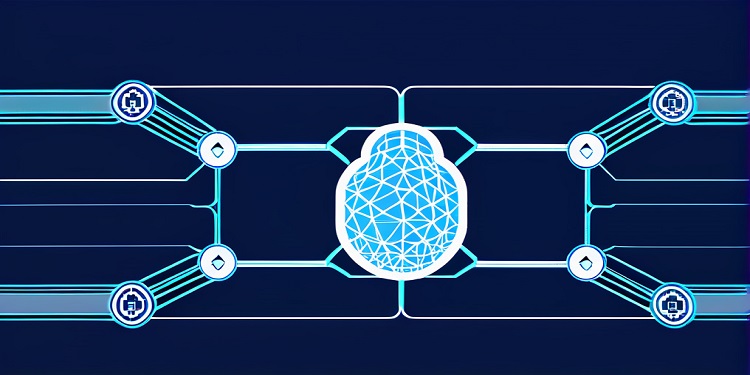Blackwire Labs has introduced a groundbreaking platform that merges generative artificial intelligence (AI) with blockchain technologies to support cybersecurity teams. This new solution provides tailored cybersecurity recommendations by utilizing a trusted, immutable data source. The platform, named Blackwire.ai, is designed to improve how organizations respond to cybersecurity threats while ensuring that AI-driven suggestions are transparent and verifiable.
The company’s CEO, Josh Ray, explained that the Blackwire.ai platform empowers cybersecurity professionals to collaboratively develop a set of best practices for tackling security threats. These practices are reviewed and approved by a network of industry experts, then stored securely on a blockchain. From there, the data is exposed to multiple AI models, which analyze it to generate actionable insights for cybersecurity teams. Ray emphasized that this blockchain-based approach allows organizations to both explain and validate AI recommendations, ensuring compliance with regulatory standards.
Blockchain-Powered Trustwire Certification for Cybersecurity
At the core of Blackwire.ai lies the Trustwire certification system, which leverages blockchain technology to create a reliable and secure content validation process. This system utilizes private session registries and applies best practices established by the Cybersecurity Community of Excellence (CCOE), a consortium of cybersecurity professionals dedicated to strengthening the industry’s defenses. By integrating blockchain with cybersecurity, Blackwire aims to provide organizations with a dependable knowledge base, enhancing their overall threat response capabilities.
Ray noted that the platform’s ultimate goal is to democratize cybersecurity. He pointed out that many organizations are facing a severe shortage of skilled cybersecurity personnel. By simplifying the threat response process through AI-powered recommendations, Blackwire.ai aims to reduce the need for highly specialized expertise, allowing more organizations to safeguard their systems effectively. One of the key advantages of this platform is that it guides cybersecurity teams on how to create the right prompts to investigate and manage incidents thoroughly.
AI-Enhanced Threat Response and Cybersecurity Automation
While AI’s role in cybersecurity has been explored before, Ray highlighted that many early platforms relied on general-purpose large language models (LLMs), which were not fine-tuned for cybersecurity-specific tasks. Blackwire.ai, in contrast, has developed a domain-specific AI model that is optimized for the unique needs of cybersecurity. This model is capable of crafting precise prompts that can then be passed on to other AI models for further analysis. In addition, the platform offers flexibility by allowing organizations to integrate their own AI models if required.
Ray explained that this capability effectively equips IT teams with an AI expert that possesses knowledge across various disciplines. This stands in stark contrast to more traditional AI systems that are typically limited to handling singular, isolated tasks. By augmenting cybersecurity professionals with such advanced AI tools, Blackwire.ai enables a more efficient and comprehensive approach to threat mitigation.
AI Adoption in Cybersecurity and the Future of the Workforce
The rate at which AI is being adopted in cybersecurity remains uncertain. However, Ray observed that teams are gradually moving past their initial skepticism and exploring the full potential of AI automation. Many professionals may soon prefer to work for organizations that provide access to advanced AI tools, which can greatly simplify the more repetitive aspects of their jobs. As AI takes over routine tasks, cybersecurity professionals are expected to shift their focus toward more complex threat analysis and incident response.
In the face of growing cyber threats, AI is also becoming an essential tool to combat increasingly sophisticated attacks, many of which are powered by AI on the side of cybercriminals. As the complexity of these attacks rises, cybersecurity teams are likely to find it difficult to stay ahead without leveraging AI tools of their own.
While it is unlikely that AI will fully replace cybersecurity professionals in the near future, its role will inevitably reshape how these teams function. The primary challenge will be determining which current tasks can be effectively automated, thereby freeing up cybersecurity professionals to focus on higher-level threat investigations. As the volume and complexity of cyberattacks continue to rise, AI-driven platforms like Blackwire.ai could provide the much-needed efficiency boost that teams require to keep pace with evolving security challenges.







